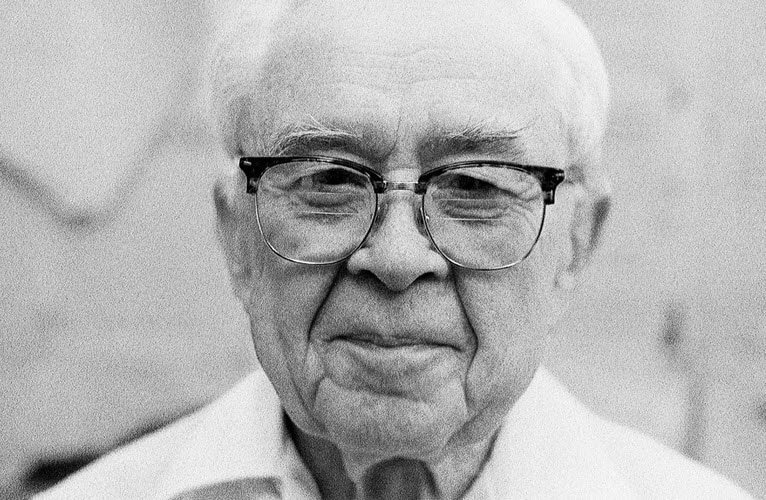Edward B. Lewis: Deciphering the Genetic Code of Development

Edward Butts Lewis (20 May 1918 – 21 July 2004) was an American geneticist. He was awarded the Nobel Prize in Physiology or Medicine in 1995.
Life and Career
He was born on 20 May 1918, in Wilkes-Barre, Pennsylvania. He received his bachelor’s degree in biology from the University of Minnesota in 1939, and his Ph.D. in genetics from the California Institute of Technology (Caltech) in 1942.
After completing his studies, he joined the faculty at Caltech, where he spent most of his career. He made several significant contributions to the field of genetics, including his pioneering work on the genetics of fruit flies.
His research at the California Institute of Technology (Caltech) revolved around deciphering the genetic mechanisms that control the development of an organism’s body plan. His most notable achievement was the identification and characterization of the homeotic genes in fruit flies. These genes play a crucial role in specifying the identity and differentiation of individual body segments.
He also discovered that mutations in specific homeotic genes could lead to dramatic alterations in the morphology and structure of the fruit fly. His pioneering studies laid the foundation for understanding how genes orchestrate the formation of body segments and determine their distinct characteristics.
Lewis’s work on the homeotic genes provided critical insights into the fundamental principles of embryonic development and the role of gene regulation in shaping an organism’s body pattern. His research not only advanced our understanding of fruit fly genetics but also had profound implications for the broader field of developmental biology.
He died on 21 July 2004, in Pasadena, California.
Award and Legacy
He was awarded the Nobel Prize in Physiology or Medicine in 1995, which he shared with Christiane Nüsslein Volhard and Eric Wieschaus. They were recognized for their collective discoveries concerning the genetic control of embryonic development and the identification of key genes involved in the process.
He was also awarded the National Medal of Science in 1990, which is one of the highest scientific honors bestowed in the United States.
Edward Butts Lewis’s legacy extends beyond the awards he received. His groundbreaking research on the genetics of fruit flies revolutionized our understanding of how genes govern the development of organisms. The discovery of the homeotic genes and their role in body segment identity provided a critical framework for studying the genetic basis of animal development.
His work continues to inspire and guide current and future generations of scientists studying developmental biology. His research paved the way for further investigations into the genetic mechanisms underlying embryonic development in various organisms, including humans. His legacy is one of profound scientific impact, with his discoveries serving as a cornerstone in the field of genetics and developmental biology.
Observer Voice is the one stop site for National, International news, Sports, Editor’s Choice, Art/culture contents, Quotes and much more. We also cover historical contents. Historical contents includes World History, Indian History, and what happened today. The website also covers Entertainment across the India and World.

